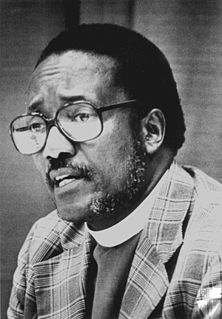A Quote by Caryll Houselander
The Passion of Christ was an experience which included in itself every experience except sin, of every member of the human race. If one may say this with reverence, the fourteen incidents of the Stations of the Cross show not only the suffering but the Psychology of Christ. Above all, they show, in detail, his way of transforming suffering by love. He shows us, step by step, how that plan of love can be carried out by men, women, and children today, both alone in the loneliness of their individual lives and together in communion with one another.
Quote Topics
Above
Alone
Another
Both
Carried
Children
Christ
Communion
Cross
Detail
Every
Except
Experience
Fourteen
His
His Way
How
Human
Human Race
Incidents
Included
Individual
Itself
Lives
Loneliness
Love
May
Member
Men
Only
Out
Passion
Plan
Psychology
Race
Reverence
Say
Show
Shows
Sin
Stations
Step
Suffering
Today
Together
Transforming
Us
Way
Which
Women
Related Quotes
Our redemption through the suffering of Christ is that deeper love within us which not only frees us from slavery to sin, but also secures for us the true liberty of the children of God, in order that we might do all things out of love rather than out of fear - love for him that has shown us such grace that no greater can be found.
A cross borne in simplicity, without the interference of self-love to augment it, is only half a cross. Suffering in this simplicity of love, we are not only happy in spile of the cross, but because of it; for love is pleased in suffering for the Well Beloved, and the cross which forms us into His image is a consoling bond of love.
I look upon the giving away of a religious tract as only the first step for action not to be compared with many another deed done for Christ; but were it not for the first step we might never reach to the second, but that first attained, we are encouraged to take another, and so at the last There is a real service of Christ in the distribution of the gospel in its printed form, a service the result of which heaven alone shall disclose, and the judgment day alone discover. How many thousands have been carried to heaven instrumentally upon the wings of these tracts, none can tell
Suffering is universal; how we react to suffering is individual. Suffering can take us one of two ways. It can be a strengthening and purifying experience combined with faith, or it can be a destructive force in our lives if we do not have the faith in the Lord's atoning sacrifice. The purpose of suffering, however, is to build and strengthen us.
To know the Cross is not merely to know our own sufferings. For the Cross is the sign of salvation, and no man is saved by his own sufferings. To know the Cross is to know that we are saved by the sufferings of Christ; more, it is to know the love of Christ Who underwent suffering and death in order to save us. It is, then, to know Christ.
Suffering invites us to place our hurts in larger hands. In Christ we see God suffering – for us. And calling us to share in God’s suffering love for a hurting world. The small and even overpowering pains of our lives are intimately connected with the greater pains of Christ. Our daily sorrows are anchored in a greater sorrow and therefore a larger hope.
Romantic love is blind to everything except what is lovable and lovely, but Christ's love sees us with terrible clarity and sees us whole. Christ's love so wishes our joy that it is ruthless against everything in us that diminishes our joy. The worst sentence Love can pass is that we behold the suffering which Love has endured for our sake, and that is also our acquittal. The justice and mercy of the judge are ultimately one.
Evil is neither suffering nor sin; it is both at the same time, it is something common to them both. For they are linked together; sin makes us suffer and suffering makes us evil, and this indissoluble complex of suffering and sin is the evil in which we are submerged against our will, and to our horror.
Men don't like to step abruptly out of the security of familiar experience; they need a bridge to cross from their own experience to a new way. A revolutionary organizer must shake up the prevailing patterns of their lives - agitate, create disenchantment and discontent with the current values, to produce, if not a passion for change, at least a passive, affirmative, non-challenging climate.





































